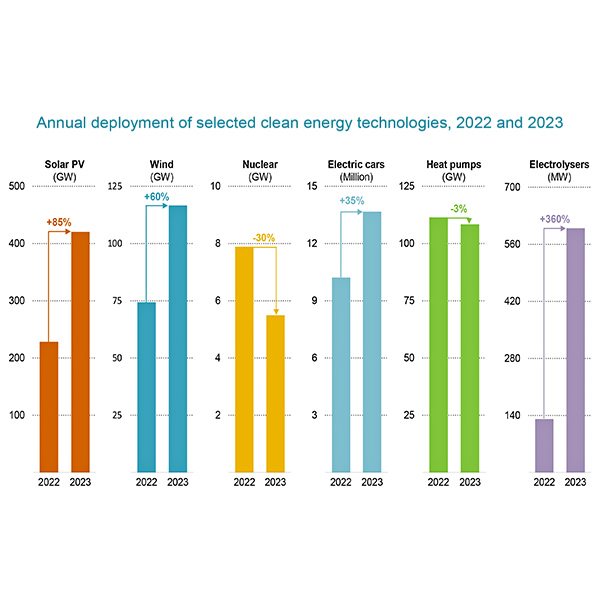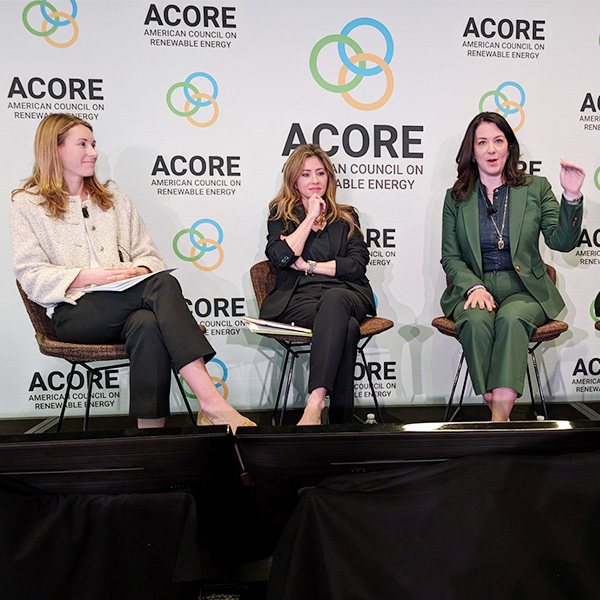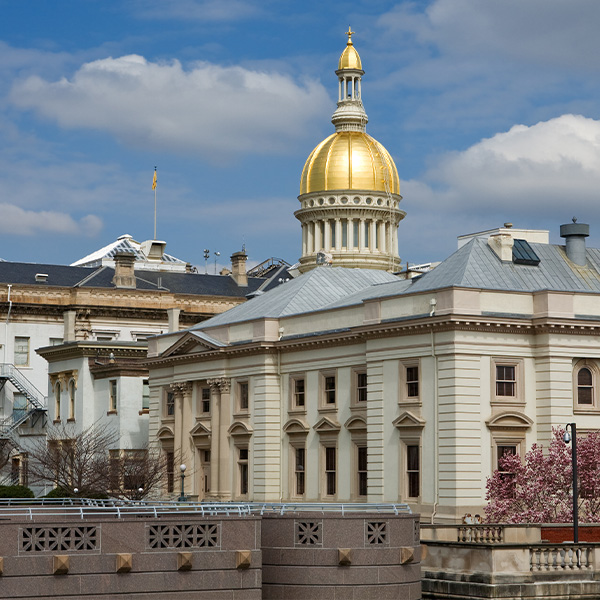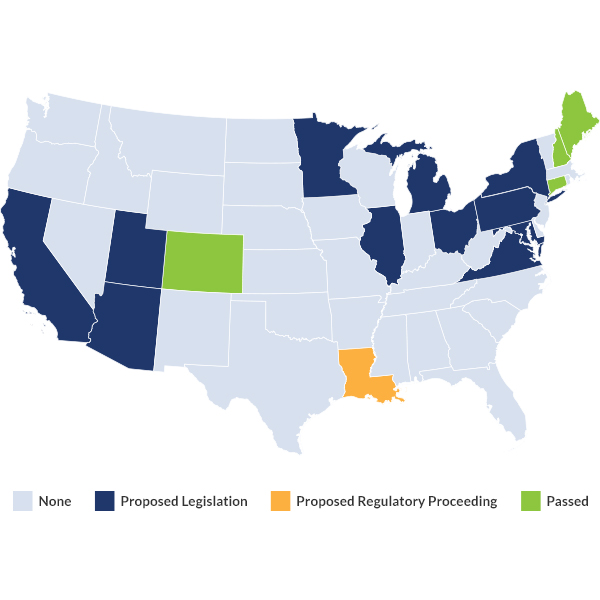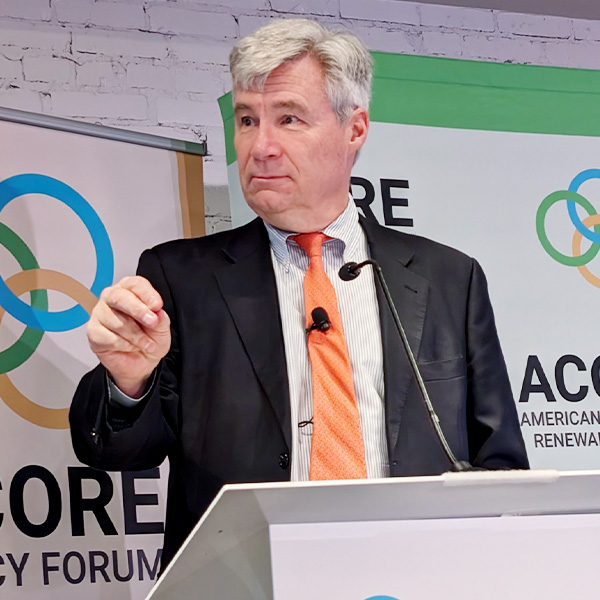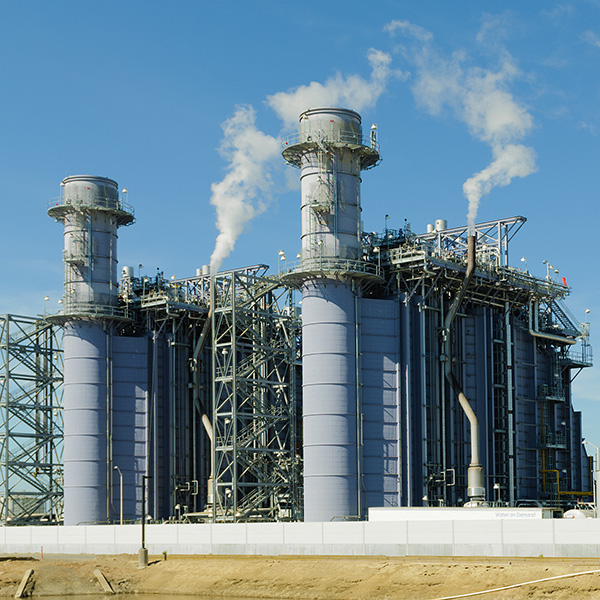NetZero Insider
Agriculture & Land UseBuilding DecarbonizationCookingEnergy EfficiencySpace HeatingWater HeatingCommentary & Special ReportsConference coverageCompany NewsEquity & EconomicsEmployment & Economic ImpactEnvironmental & Social JusticeFederal PolicyCongressDepartment of EnergyLoan Programs Office (LPO)Department of TransportationEnvironmental Protection AgencyFederal Energy Regulatory CommissionGeneral Services Administration (GSA)Interior DepartmentBureau of Land ManagementBureau of Ocean Energy ManagementNuclear Regulatory CommissionTreasury DepartmentWhite HouseGeneration & FuelsBioenergyFossil FuelsCoalNatural GasGeothermalHydrogenNuclearSMRRenewable PowerCommunity solarHydropowerOffshore Wind PowerOnshore Wind PowerSolar PowerRooftop solarUtility scale solarImpact & AdaptationIndustrial DecarbonizationState and Local PolicyAlabamaArizonaCaliforniaCA LegislationCalifornia Air Resources Board (CARB)California Energy Commission (CEC)California Public Utilities Commission (CPUC)ColoradoConnecticutDelawareDistrict of ColumbiaFloridaGeorgiaHawaiiIdahoIllinoisIndianaLouisianaMaineMarylandMassachusettsMichiganMississippiMissouriMontanaNevadaNew HampshireNew JerseyNew MexicoNew YorkNYSERDAPublic Service CommissionNorth CarolinaOhioOregonPennsylvaniaRhode IslandSouth CarolinaTennesseeTexasUtahVermontVirginiaWashingtonWest VirginiaWisconsinWyomingTechnologyCarbon CaptureTransmission & DistributionEnergy StorageMicrogridsTransportation DecarbonizationAirplane DecarbonizationEV chargersHeavy-duty vehiclesBattery Electric Buses (BEB)Fuel Cell Electric Buses (FCEB)Light-duty vehiclesBattery Electric VehiclesFuel Cell VehiclesPlug-in hybrid electric vehiclesShip electrificationClean Ports
Worldwide CO2 emissions hit a new record in 2023 but would have climbed even higher without the rapid adoption of clean technology.
The best way to defend the Inflation Reduction Act could be to stop mentioning the law and focus on its benefits, speakers told the ACORE Policy Forum
A New Jersey Senate panel OK'd a bill requiring utilities to upgrade their distribution infrastructure to increase their capacity for renewable generation.
New EPA standards intended to reduce air emissions from the crude oil and natural gas industries are scheduled to be published this week.
Bribery scandals and concerns over reliability and the pace of decarbonization have caused increasing scrutiny of utilities’ political activities.
The power industry is facing an increasingly delicate balancing act as policies drive some generators to retirement, while major new loads are popping up and making planning more difficult.
Utility executives told state regulators that natural gas and nuclear power will be part of the electric mix for decades as the industry decarbonizes.
One of the Senate’s strong liberal voices on climate change, Sen. Sheldon Whitehouse slammed the fossil fuel industry for its campaign of “climate denial and propaganda.”
The Environmental Protection Agency is delaying new emissions restrictions for existing natural gas-fired power plants.
Washington’s Democratic-controlled House of Representatives approved a bill that will allow the state’s cap-and-trade program to link up with the system shared by California and Quebec.
Want more? Advanced Search
